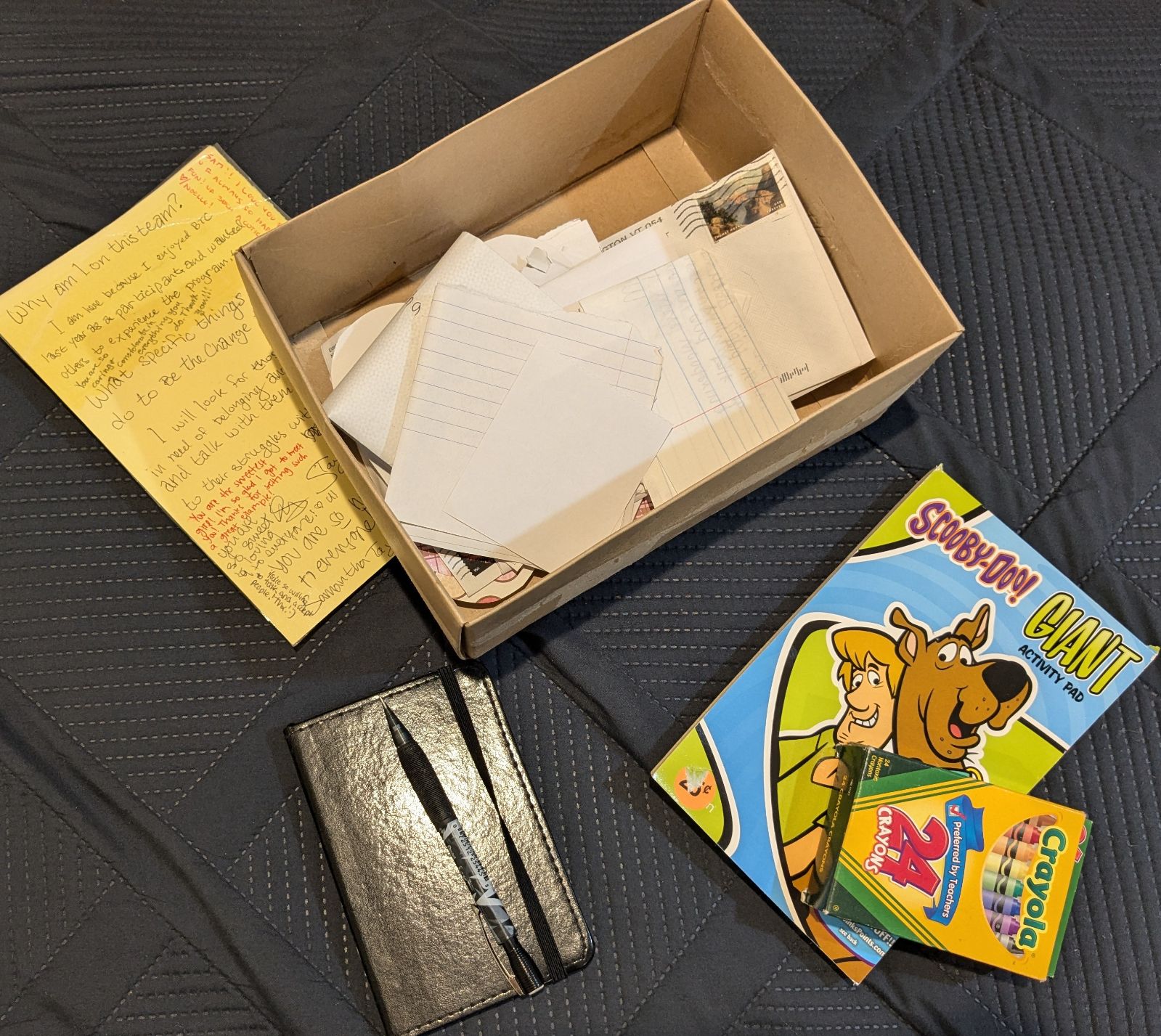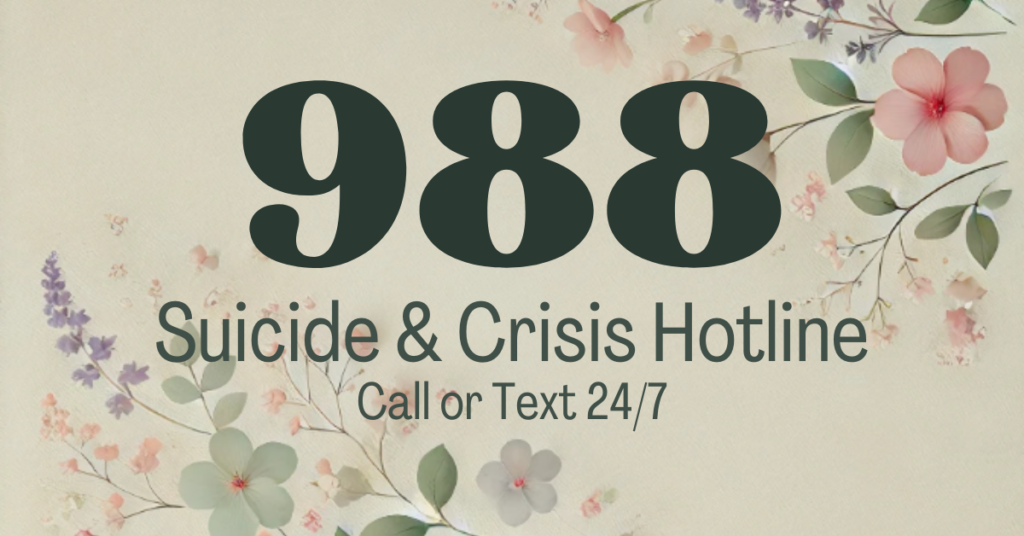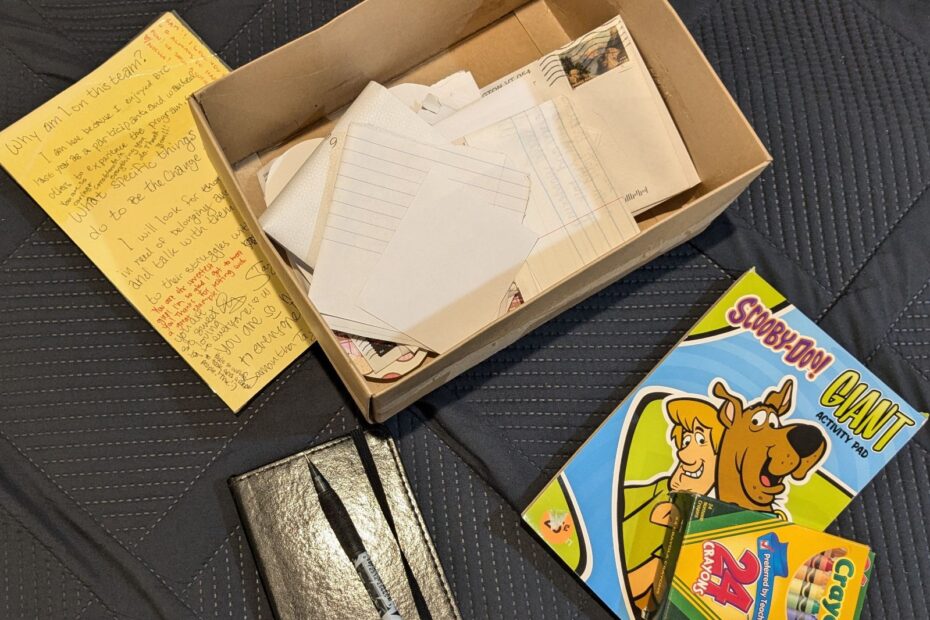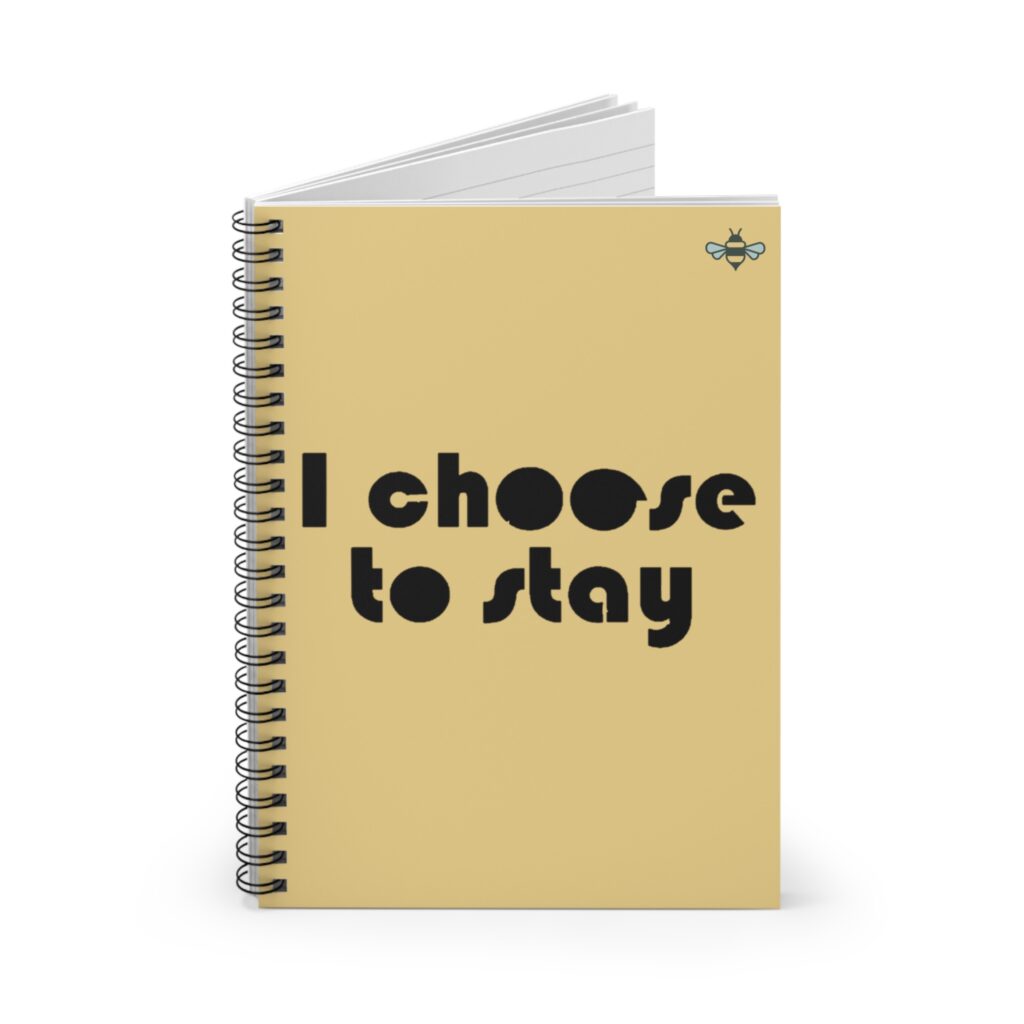When you are experiencing a mental health crisis, it is important to have a plan in place to get you back to a stable mental state. This plan may include a mental health crisis kit with various tools such as self-care items, a notebook and pencil, notes from loved ones, and contacts for the crisis. On top of having these tools, it is important to be able to know where to get help in these events, such as the 988 hotline or the hospital. My experiences are combined with helpful resources as we dive into creating a kit.
My Lightbulb Moment
You know when your mind is racing but you’re trying to get to sleep? One night when that was happening to me, I thought up an idea of what is essentially a crisis kit. The main ingredient: notes from loved ones. I have since created my own crisis kit as well as simplified versions for a dozen or so friends one year for Christmas, asking each group of friends to create those notes for one another. While my crisis kit nowadays is not extensive, I cherish the dozens of notes from loved ones that have been added, and have uploaded many of them to the digital cloud in order to access them anywhere and any time.

What is a Crisis Kit?
A mental health crisis kit is a collection of items and tools designed to help someone cope during a mental health emergency or difficult emotional moment. Just like a first aid kit helps when you get hurt physically, a mental health crisis kit is there to support your mind when you’re feeling overwhelmed, anxious, or depressed. The goal of a crisis kit is to provide comfort, distraction, and practical help until the person can get the support they need.
Having a mental health crisis kit on hand can be an important step in taking care of your mental well-being. It helps people feel more in control when they’re experiencing tough emotions and can be a reminder that they have the power to handle challenges with the right support. Whether at home, at school, or on the go, a crisis kit can be a useful tool to have in moments of need.
Things to Add to Your Crisis Kit
A mental health crisis kit can be different for each person because everyone has different things that help them feel better.
Comforting Objects
A soft blanket or stuffed animal, that can bring a sense of calm. For some people this may be a sentimental object, like a baby blanket or stuffed animal from when you were a child. This may also be those notes that I discussed previously.

Self Care Items
Scented candles or lotion might be included to help relax the mind and body. You can add some soft pajamas or slippers and This can help especially if you have an extended period of time to relax yourself. Even adding a book to read to create a sense of escape can help. In the past, I have included some hard candies or chocolate in my own crisis kit.
Journals & Notebooks
These allow a person to write down their thoughts and feelings to better understand what’s going on inside their head. You can buy some from the shop. My favorite is linked below. This is a great time to just brain-dump without censoring your thoughts to gain an idea of what may help you to pick yourself up when the time is right.
More Tools
Other tools in the kit could include calming music playlists, breathing or mindfulness exercises, and affirmation cards that remind the person of their strengths. Some kits may even include a list of emergency contacts, like a therapist, friend, or family member, in case someone needs to reach out for help.
Ways to get Help
In some cases, it may be best to reach out to others when you are having a difficult time and in a crisis. It’s important to know that help is available, and you don’t have to deal with it alone. Here are some steps you can take to get the support you need:
Talk to Someone You Trust
Sometimes, talking to someone like a friend, family member, or teacher can really help when you’re feeling overwhelmed. Sharing how you feel with someone you trust can make you feel less alone and more understood.
Call a Crisis Helpline
There are hotlines where you can talk to trained people who can help you through a crisis. Some important numbers to know are:
National Suicide Prevention Lifeline (U.S.): Call or text 988
Crisis Text Line: Text HOME to 741741 (U.S.)
SAMHSA (Substance Abuse and Mental Health Services Administration): 1-800-662-HELP (4357)
These hotlines are there to listen, offer advice, and guide you to the right support.

See a Mental Health Professional
If you’re feeling really upset or anxious, a therapist, counselor, or psychologist can help you work through your feelings. Many of these professionals can see you quickly if you’re in a crisis and can teach you ways to cope with difficult emotions.
Go to the Emergency Room
If you’re feeling like you’re in danger or can’t handle your emotions, it’s okay to go to the hospital emergency room. Hospital staff can help you right away and get you the care you need.
Use Online Resources
There are also online tools and apps that can help you manage your emotions. These can teach you ways to relax, focus, or calm down when you’re feeling overwhelmed.
Have a Crisis Plan
If you know you sometimes struggle with your mental health, it can help to have a crisis plan ready. This plan could list people to call, things to do when you’re feeling down, and important phone numbers for help.
Remember, asking for help is brave. It’s okay to not feel okay, and there are people who care about you and want to help. You don’t have to go through it alone.
Final Thoughts
Having a mental health crisis kit and knowing how to get help during tough times can make a big difference in managing emotional challenges. A crisis kit is a personal tool that provides comfort and support when you need it most. By including comforting objects, self-care items, journals, and a list of emergency contacts, you can feel more in control during difficult moments.
It’s also important to know where to turn for professional help, whether through crisis hotlines, a therapist, or the emergency room. My own experience with creating a crisis kit has shown me how powerful simple acts of care, like receiving notes from loved ones, can offer strength when I need it most.
Everyone’s crisis kit will look different because everyone has their own ways of coping, but the key is to have resources and support systems ready for when things feel overwhelming. No matter what you include in your kit or how you seek help, remember that reaching out for support is an important step in taking care of yourself. You don’t have to go through a mental health crisis alone—help is always available.

